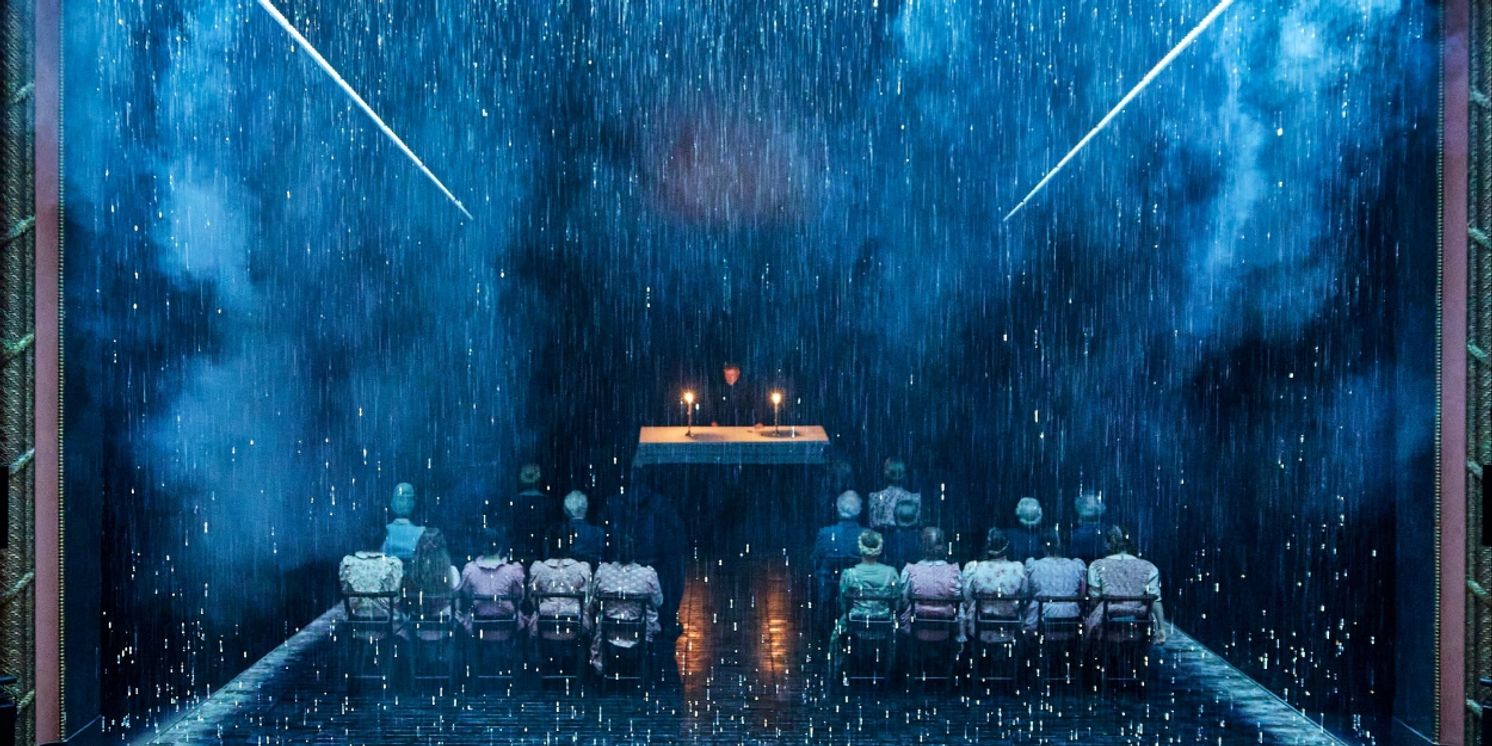Review: THE CRUCIBLE, Gielgud Theatre
A bewitching production of a timeless classic

![]() The year is 1692.
The year is 1692.
A young girl, the daughter of a Reverend, fits restlessly in her bed, unable to wake or speak. Is she merely sick, or is something more sinister at play?
When no explanation presents itself, the people of Salem, Massachusetts are quick to find their own answers - she has been bewitched. Soon after, other young girls within the town appear similarly possessed - wailing, screaming, and sobbing in unison. Accusations fly. Authorities are brought into question those believed to be witches.
When it's over, 20 people have died.
The Crucible is inspired by the real-life Witch trials in Salem - where over 200 people of all ages, genders, and social standings were accused of witchcraft within a single year. While it was by no means a unique occurrence for this period - this tale remains the most enduring witch-hunt of our times and is often used as a warning for how quickly personal bitterness can influence public discourse - to an always-disastrous end.
The play itself was an allegorical reference to 1950s McCarthyism, and Arthur Miller's words remain as bitingly relevant today as when they were first written. Too often, we are reminded of the dangers of favouring popular discourse over original (or individual) thought or the ways in which we can take down those who have wronged us using just our tongues.
After all, many accusations thrown around in The Crucible are embedded in personal politics. Accusers are servants to the accused, potential inheritors of their land, or in the case of Abigail Williams (House of the Dragon's Milly Alcock), the de-facto leader of the afflicted girls), a jilted lover, who was tossed aside by John Proctor (Brian Gleeson), a man who had "put knowledge in [her] heart."
Director Lyndsey Turner leans into the more religious aspects of the script; dissonant choral singing punctuates some of the weightier moments, creating some dark and atmospheric. Her skillful direction also means that none of the characters within this ensemble production feel lost or superfluous, even though some appear in just a few scenes.
John Proctor is Miller's flawed hero - a husband and farmer who sees that the girl's accusations are fabrications from the very start - though his affair with Abigail Williams is arguably the catalyst for the small-town drama itself. Here, Brian Gleeson gives an absolute stand-out performance - no easy feat in an ensemble as strong as this one. Every line is delivered with conviction and heart, and your eyes are drawn to him throughout. His relationship with his wife, Elizabeth (the wonderful Caitlin Fitzgerald), is particularly interesting.
While modern audiences will likely take more of an issue with his power over Abbie (just 17 and under his employment), she quickly becomes the play's villain - pulling the strings to exact her vengeance. Whether she's opportunistic or calculated remains to be seen, but she's powerful, nonetheless. Alcock, too, gives a fantastic performance, confidently portraying Abigail's duplicity through tear-stained cheeks and sharpened eyes.
Within the ensemble, Karl Johnson brings both tenderness and comedy to the role of Giles Corey, and Fisayo Akindae is wonderfully emotive as Reverend John Hale.
However, it is the staging, with set design from Es Devlin and lighting design from Tim Lutkin, that steals the show.
From a sheet of rain falling to the ground to tilted staging, they create an on-stage world that is insular, remote, and claustrophobic - i.e., the perfect storm for hysteria to take root. It's hard not to be instantly swayed by this staging - and many audience members gasp upon entering the space - however, the production manages to match this weight.
There's a reason that Miller's work is so often considered timeless, but this production, originally staged at The National Theatre, is excellent in its own right. While it is by no means a happy story, it's a powerful one - one that audiences are sure to enjoy.
Bewitching, beguiling, and brilliant - The Crucible is a must-see.
Check out a behind-the-scenes look at the production here.
The Crucible is at the Gielgud Theatre until September 2.
Photo Credit: Brinkhoff Moegenburg
Reader Reviews
Videos

